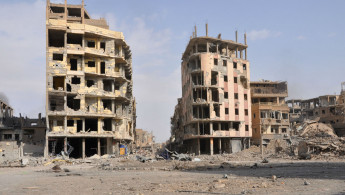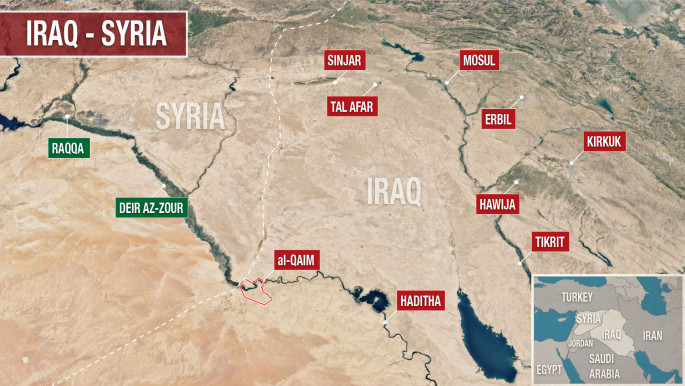IS recaptures Syria border town in desperate bid to salvage 'caliphate'
The Islamic State group recaptured Albu Kamal in eastern Syria on Saturday after a fierce fightback to save the last urban bastion of its collapsing "caliphate".
The militant group overran swathes of territory in Syria and Iraq in 2014, but its self-styled "caliphate" has since been whittled down to a pocket of land along the border between the two countries.
IS is putting up a fierce defence there, particularly for the vital Syrian border town of Albu Kamal, said the Syrian Observatory for Human Rights monitoring group.
Syrian regime forces and allied militia from Lebanon, Iraq and Iran overran Albu Kamal on Thursday but lost the town again just two days later after a string of IS counter-attacks and ambushes.
"IS fully recaptured Albu Kamal, and regime forces and allied militia are now between one to two kilometres from the city limits," Rami Abdel Rahman, head of the Britain-based Observatory, said on Saturday.
The Observatory also reported 26 civilians killed, including nine children, since Friday night in artillery fire by regime forces and Russian air strikes that hit villages and camps for those displaced by the fighting in Albu Kamal.
The two countries have long backed opposite sides in Syria, but the Kremlin on Saturday said US President Donald Trump and Russian counterpart Vladimir Putin made progress during a brief meeting on the sidelines of a summit in Vietnam.
Trump and Putin also "confirmed their determination to defeat ISIS", an alternative name for IS.
Across the border, Iraqi forces seized on Saturday Rumana and 10 other villages as they worked their way towards the Euphrates Valley town of Rawa, the last Iraqi town still held by IS.
Albu Kamal is the last significant Syrian town it controls. Losing it would cap the group's reversion to an underground guerrilla organisation with no urban base.
Political reconciliation
Saturday's joint statement from the US and Russian presidents urged Syria's warring sides to take part in a new round of talks later this month in Switzerland.
"What the joint statement indicates is a commitment to get this to a political reconciliation and peace process. That serves their interest, it serves our interest," a senior US State Department official said on Saturday.
The official said it was likely that Syria's post-conflict political system would be "a power-sharing arrangement just like we ended up with in Iraq".
The official expected that future parliamentary and presidential elections would see the Syrian people "decide they want different leadership".
Assad would be allowed to go "wherever he would like to go. Unless he's under war crimes investigations", the official said.
IS rose to prominence in the chaos of Syria's conflict, which began when the Baath regime, in power since 1963 and led by Assad, responded with military force to peaceful protests demanding democratic reforms during the Arab Spring wave of uprisings, triggering an armed rebellion fueled by mass defections from the Syrian army.
Russia has been operating a bombing campaign in Syria since 2015, when it stepped in to support Assad's rule and tipped the conflict in his favour. Human rights monitors say that the raids have resulted in many civilian casualties.
The brutal tactics pursued mainly by the regime, which have included the use of chemical weapons, sieges, mass executions and torture against civilians have led to war crimes investigations.






 Follow the Middle East's top stories in English at The New Arab on Google News
Follow the Middle East's top stories in English at The New Arab on Google News


